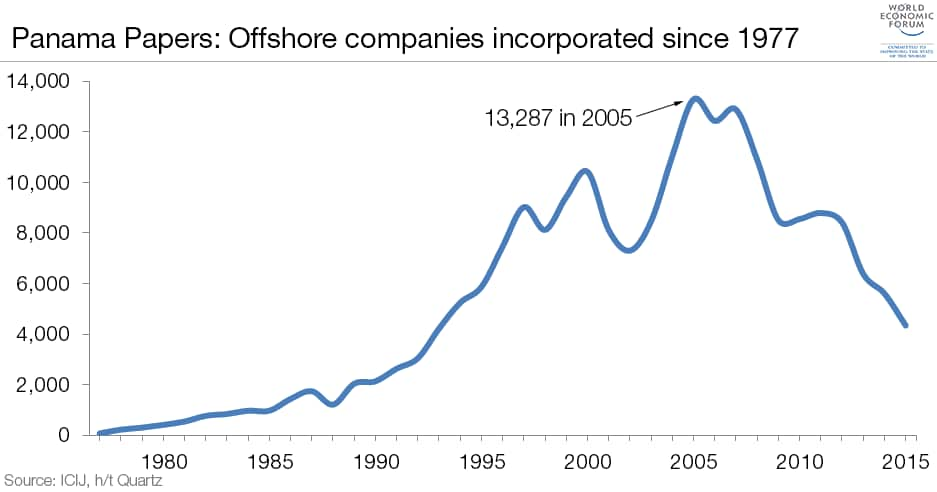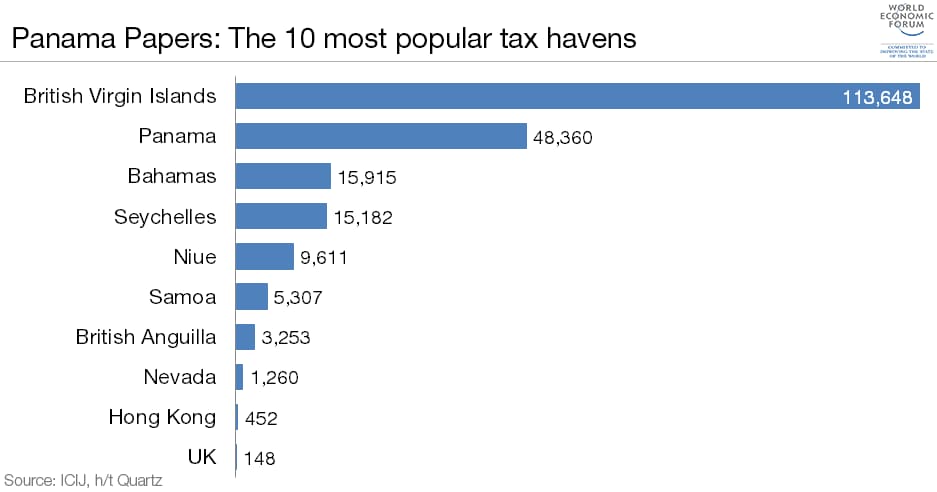5 charts on the Panama Papers leaks

Image: REUTERS/Carlos Jasso

Get involved with our crowdsourced digital platform to deliver impact at scale
Stay up to date:
Cybersecurity
The Panama Papers represent the biggest leak the world has ever seen. The 2.6 terabytes of data, containing 11.5 million documents, dwarfs all previous data leaks seen to date.
The data, which exposes the use of tax havens, mostly consists of e-mails, photos, pdf files, spreadsheets, and "excerpts of an internal Mossack Fonseca database" dating back to the 1970s, according to Süddeutsche Zeitung, the German newspaper that received the leaked files.
Here are five charts that help explain the leak in a bit more detail.
1. The leaked files from Mossack Fonseca contain nearly 40 years of data on over 21,000 companies.

2. One out of every two companies appearing in the leaked Mossack Fonseca documents were incorporated in the British Virgin Islands.
The second most popular destination for company registrations in the files was Panama, where Mossack Fonseca is headquartered.

3. Hong Kong topped the list where "intermediaries" (banks, law firms, accountants, and more) operate.
According to the International Consortium of Investigative Journalists, Mossack Fonseca worked with "more than 14,000 banks, law firms, company incorporators, and other middlemen to set up companies, foundations and trusts for customers."

4. The leak is the biggest one to date - dwarfing Wikileaks, the HSBC files, the Luxembourg tax files, and the Offshore leaks combined.

5. And what's in the leaked files? Over 4.8 millions emails, 3 million "database formats", 2 million PDFs and 1.1 million images.

Don't miss any update on this topic
Create a free account and access your personalized content collection with our latest publications and analyses.
License and Republishing
World Economic Forum articles may be republished in accordance with the Creative Commons Attribution-NonCommercial-NoDerivatives 4.0 International Public License, and in accordance with our Terms of Use.
The views expressed in this article are those of the author alone and not the World Economic Forum.
The Agenda Weekly
A weekly update of the most important issues driving the global agenda
You can unsubscribe at any time using the link in our emails. For more details, review our privacy policy.
More on CybersecuritySee all
Simon Torkington
April 23, 2024
Akshay Joshi
April 22, 2024
Spencer Feingold and Johnny Wood
April 10, 2024
Deryck Mitchelson
April 3, 2024
Akshay Joshi
March 21, 2024







